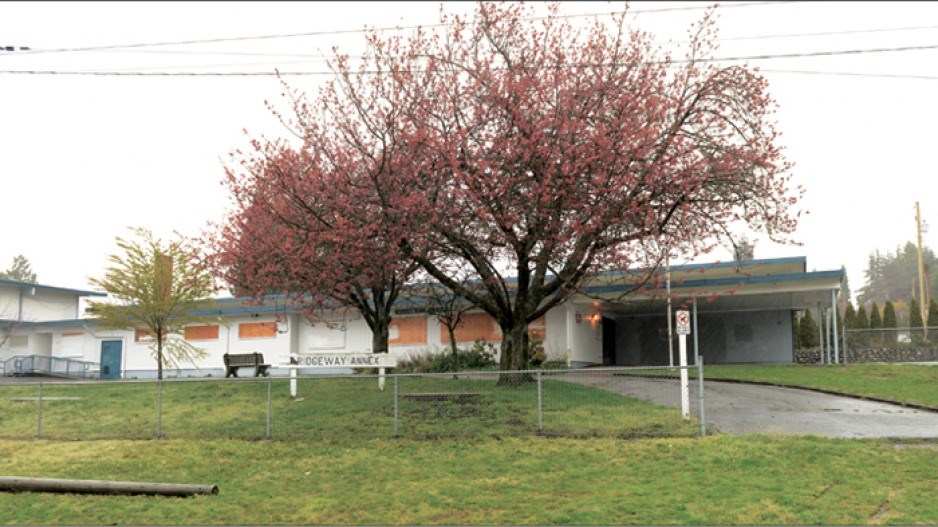B.C. school districts are disposing of surplus property at an unprecedented rate as they wrestle with declining student numbers, shifting populations and tight budgets.
According to B.C.’s Finance Ministry, 18 school properties around the province were sold during the last 12 months. A similar number are still on the market, awaiting buyers or long-term lessees.
North Vancouver, with its high cost of housing, has been particularly hard hit by demographic changes. The number of students attending public schools has dipped by about 15% since 2001, and that’s prompted the district to declare 10 former schools and a curriculum centre as surplus.
Of those, two sales are in the process of being finalized: a $6.4 million bid by Morningstar Development Ltd., a Polygon affiliate, for Monterey elementary and one for $5 million from Anthem Properties for Ridgeway annex.
Housing developments are planned for Monterey’s 1.17 hectares near the base of Grouse Mountain and Ridgeway’s half-hectare of land close to Lonsdale Quay. The schools, closed in 2004 and 2011 respectively, are empty and in poor condition.
Meanwhile in Richmond, Polygon agreed to pay $41 million for the five hectares of land that once was the site of Steveston secondary. The company intends to build townhouses on three hectares, with two hectares committed to parkland.
The Sooke school district recently announced the sale of an 8.5-hectare site, previously Belmont secondary, to Sobeys for $23 million. The grocery giant is planning a mixed-use development on the site when it takes possession in a couple of years.
This flurry of activity is a result of a government policy change that gave boards of education the right to sell land without first obtaining consent from the Education Ministry. That requirement, imposed by former premier Gordon Campbell in 2008, had effectively halted school property sales for four years.
But Christy Clark’s government decided in 2012 that the sale of unused public assets held by school districts, health authorities, Crown corporations and transportation authorities would spur economic activity, create jobs and generate revenue. A government review that year identified 100 properties that could be sold, including 40 in the education sector.
Some school districts jumped at the prospect of selling excess property and using the proceeds for necessary capital projects. Others, such as Vancouver, resisted.
“I didn’t run for office to sell off public assets,” said Patti Bacchus, Vancouver school board chairwoman. “I want to protect them.”
Leasing is a better option than selling because it produces revenue that can help with annual operating costs, she said. Money from property sales can only be used for other capital projects.
Vancouver leases several properties, including Kingsgate Mall, which it owns, but still faces a $12 million shortfall for 2014-’15. It has proposed deep spending cuts, including cancellation of the popular band and strings program in elementary schools.
North Vancouver, in dealing with its surplus property, is considering leases as well as sales.
Franci Stratton, chairwoman of the North Vancouver board, admitted not everyone is pleased with her board’s land management plan. “People are passionate about their neighbourhoods, but there isn’t unanimity on a single approach or direction,” she said.
Trustee Susan Skinner said the district has been too quick to entertain offers from developers and hasn’t given sufficient thought to how the properties could become centres for community services such as seniors centres or daycares.
“I’m not against development at all … but this seems so dollar-driven.”




